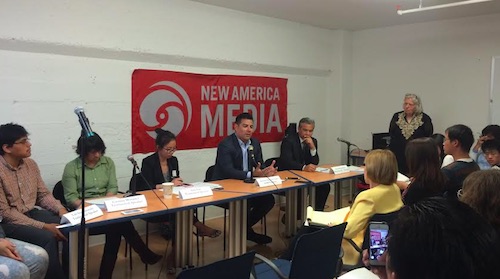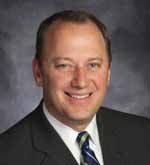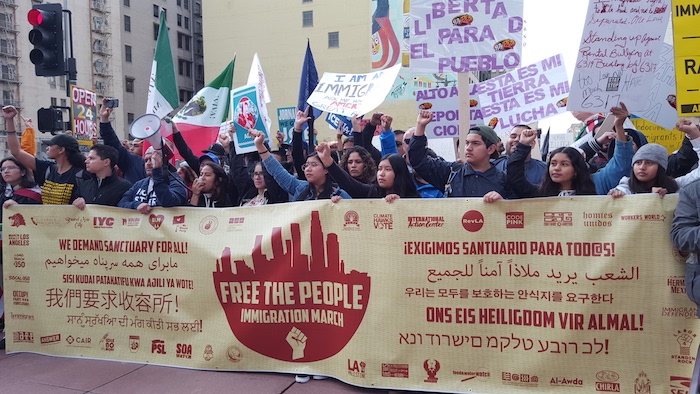A harsh reality once stood between Ana Maciel of Soledad, California, and her dream of a college education: She is an undocumented immigrant.
Now, just a few years later, the junior is living that dream at the University of California, Davis, and has played a role in establishing a center to help others like herself through their obstacles to a university education.
The new AB540 and Undocumented Student Center is opening in the heart of the campus. It will be part of the Student Community Center open house from 1 to 3 p.m. on Oct. 1, and hold a grand opening from 5 to 6:30 p.m. on Oct. 21.
“It means so much,” said Maciel, a junior majoring in Chicana/o studies and political science. “It means a central location where students can see they’re represented on campus and there are other people like them.”
AB540 refers to a California state law, passed in 2001, that exempts students from paying nonresident college tuition (which is costlier than resident tuition) if they have attended a California high school for at least three years, graduated from a California high school and met other requirements.
Empowering students
AB540 and undocumented students should have the support services they need to realize their dreams, said Adela de la Torre, vice chancellor for Student Affairs at UC Davis.
“I have seen the undue stress these students have faced working multiple jobs because of their limited access to financial aid and the isolation they have experienced not fitting into the more traditional student path,” she said. ”Now we can create an environment where they are no longer navigating these issues alone and have campus support to reach their full potential.”
The center will offer undocumented students community, coordinate resources for them and support their success. Andrea Gaytan, formerly assistant director of the Cross Cultural Center on campus, is the new center’s director.
Building on the efforts of students over the years, Maciel and other members of SPEAK (Scholars Promoting Education Awareness and Knowledge), a student-run organization that supports undocumented students, last year were drafting a proposal for a center and in discussions with campus leaders.
It was timely when in fall 2013, UC President Janet Napolitano announced a $5 million initiative to enhance student services and financial aid available to undocumented UC students. UC Davis is receiving $500,000 to serve its estimated 200 undocumented students.
Challenges for undocumented students
Predominantly Asian and Latino, most undocumented students at UC Davis graduate from underperforming high schools, are from low-income families, and are in the first generation of their family to go to college.
Gaytan said undocumented students face significant challenges. They must adapt to the campus culture, including both academic and administrative systems that can be difficult to navigate. They can often experience discrimination based on their lack of legal status, ethnic background and economic disadvantage. And they may fear the deportation of themselves or their family.
Services for undocumented students
The new center will offer academic and financial advising, and access to counseling services. It will also advocate for undocumented students and raise campus awareness about their concerns.
Through a partnership with the School of Law’s Immigration Law Clinic, the center will offer free immigration-related legal services including representation in immigration court or before immigration agencies; and workshops for preparing applications for Deferred Action for Childhood Arrivals, naturalization and other forms or immigration relief.
Gaytan, who started in August, has also served as program coordinator for an English-as-a-second-language program at Santa Fe Community College in New Mexico, taught English at two Mexican universities and English immersion at a California intermediate school. She is outgoing chair of the Latino Staff and Faculty Association at UC Davis.
Maciel will serve as the academic coordinator for the center. Three other undergraduates will help with outreach, retention and marketing. And two graduate researchers will assist with advocacy, policy, and education and training of staff.
The route to university
For Maciel, studying at a world-class university and helping others do the same is a long way from her native Irapuato, a city in the Mexican state of Guanajuato. She was told an uncle brought her across the border in 1997, and her mother crossed through the desert. Her childhood memories include long drives to her mother’s deportation hearings.
Maciel said she always loved school and wanted to go to a university. But when her high school teacher asked his class to bring in their parents’ documents so they could apply for federal student aid, she knew her family didn’t have the documents.
Paying for her daughter’s college seemed daunting to a single mother of four who worked in the fields and cared for other people’s children. Maciel’s mother could help her through the first quarter. Private scholarships would help, too.
Just about the time spring quarter fees were due that first year, Maciel learned she was among the first cohort of students to benefit from the new California Dream Act, which allows AB540 undocumented students to qualify for state and UC-funded aid.
“It was a huge relief,” Maciel said. “I knew I wouldn’t have to focus on money at finals. I was just so happy to be here.”
In 2013, Maciel was granted deferred action on removal from the United States and permission to work under the Deferred Action for Childhood Arrivals program. Since then, she’s worked at a clothing store in Salinas and as a research assistant. This year, in addition to her job at the center, she’ll also serve as an academic peer adviser in the Department of Chicana and Chicano Studies.
Maciel is enthusiastic about the year ahead. She’s eager to watch the AB540 and Undocumented Student Center come to life. And as co-chair of SPEAK, she wants to continue to advocate for affordable housing, grants and scholarships to provide more help for undocumented students.






